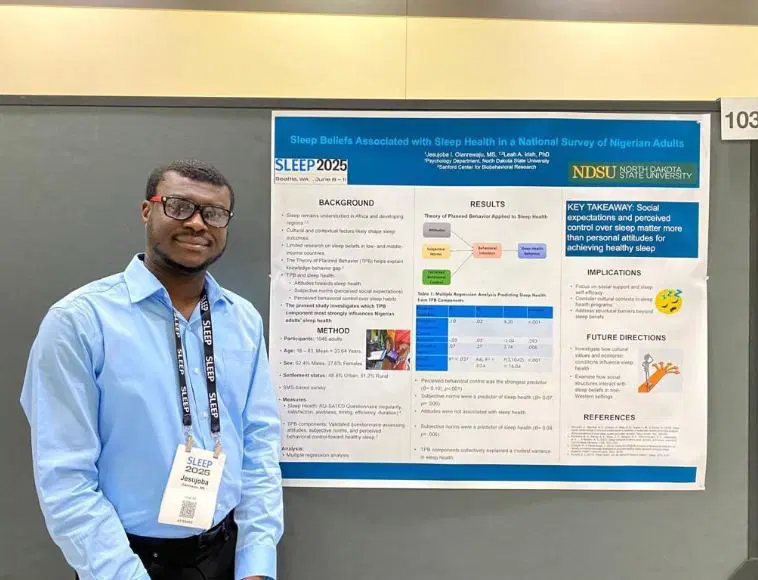
Source: Chioma Obinna
A national study has revealed a widespread sleep deficiency among Nigerians, with serious health implications.

A landmark study of over 1,000 Nigerian adults has uncovered a sleep health crisis that could be silently fueling Nigeria’s growing epidemic of cardiovascular disease, diabetes, and early mortality.
The study, led by Jesujoba Olanrewaju, a U.S.-based Nigerian behavioral sleep scientist, revealed that many Nigerians score just above 50% on standard global sleep health metrics — far below what is considered healthy.
“Nigerian adults are not sleeping well, which is deeply concerning given the adverse health effects,” said Olanrewaju.
Conducted in July 2024, the research sampled adults from all 36 states and the Federal Capital Territory, providing a national snapshot of sleep health.
Among the key findings:
“In many Nigerian communities, darkness is not associated with safety or rest—it signals vulnerability,” Olanrewaju explained. “Insecurity, noise, poverty, and erratic power supply disrupt sleep even in ideal conditions.”
Olanrewaju, currently a doctoral researcher at North Dakota State University, specializes in behavioral sleep medicine and is a member of international bodies like the American Academy of Sleep Medicine, World Sleep Society, and Nigerian Sleep Society.
He argues that sleep health is not a luxury, but a public health priority.
“Sleep is as vital as food or water,” he said. “Poor sleep increases the risk of obesity, stroke, depression, and heart disease. Yet, most Nigerians treat it as optional.”
He noted that sleep is a modifiable behavior, meaning that large-scale interventions—public education, primary healthcare integration, and behavioral change campaigns—can improve outcomes quickly.
“A well-rested population is a healthier, more productive population,” he added. “If Nigeria is serious about health and economic development, it must wake up to the power of sleep.”
Olanrewaju called on governments, hospitals, and NGOs to:
As Nigeria battles rising cases of non-communicable diseases, experts say it is time to put sleep at the center of health policy. The study’s implications are clear: solving the sleep crisis may be one of the most effective, least costly ways to boost national well-being.